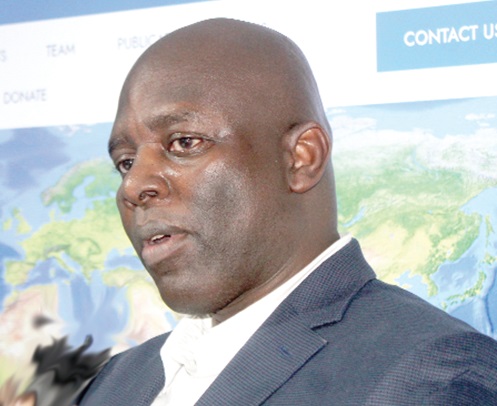
ARC could become 3rd political force — Dr Osae-Kwapong
The Alliance for Revolutionary Change (ARC) has the potential to become a third force in the nation’s political space that can compete with the New Patriotic Party (NPP) and National Democratic Congress (NDC) in the December 7 general election, the Executive Director of Democracy Project, a political think tank, Dr John Osae-Kwapong, has said.
He said his view was supported by the results of an Afrobarometer survey in 2002 which indicated that 56 per cent of Ghanaians wanted more political parties as a way of ensuring that they had a real choice in who governs them.
When repeated in 2022, he said, the survey saw an increase of 72 per cent of Ghanaians demanding more political parties. “From what has been shared publicly so far, the goals of the alliance are noble and the desire to be a third force in Ghana’s NDC-NPP-dominated political space is a welcome move,” he said.
Dr Osae-Kwapong said this in an interview with the Daily Graphic following the launch of the ARC led by Alan Kyerematen and Dr Michael Abu Sakara Foster in Accra last week.
Third force
Throwing more light on why the ARC could be a third force in the political landscape of the country, Dr Osae-Kwapong said if the leaders of the alliance adopted a less partisan posture, its alternative voice could play the role of mediator and moderator in the country’s political dialogues and thereby attract more floating votes.
Beyond that, he said, should our political elites eventually agree to make the country’s local government elections partisan, the leaders of the alliance could sponsor candidates and have representation in the local government spaces.
“If this happens, the unit of government with the most proximity to the people will have options beyond NDC and NPP,” he said.
Impact in 2024 election
Asked whether the ARC could make any impact in the 2024 elections looking at the country's history with such alliance in an election year, Dr Osae-Kwapong said from the latest poll by the Global Info Analytics, Mr Kyerematen attracted seven per cent of the vote while Dr Abu Sakara was not included in the poll therefore it was difficult to gauge how many voters he was currently attracting.
He said when Dr Abu Sakara last contested in the presidential elections of 2012 his share of the vote was negligible. “If the rest of the candidates included in the poll join in the alliance, it still gives them about 10 per cent per cent of the total potential votes. Additional polls will be conducted as the election season progresses and give us further insights into the potential strength of the alliance,” he said.
However, Dr Osae-Kwapong said, given the historic performance of third parties in Ghana’s elections, its impact may be limited, adding that “at best, if the alliance becomes attractive, it can push the election into a second round, thereby serving as important king makers in who eventually becomes president. That is a tall order though. In the end, we will have to wait to see what the voters do come December 2024,”
ARC
The ARC is an amalgamation of political groups whose primary purpose is to topple the nation’s political duopoly and offer Ghanaians an alternative government. It is made up of the Movement for Change (M4C), the National Interest Movement (NIM), the Ghana Green Party (GGP), the Third Force Movement, the Non-Alliance Voters Association of Ghana (NAVAG), the Ghana First Coalition (GFC), the Union Movement (UM), the Crusaders Against Corruption and the Ghana National Party (GNP) among others.
The ARC has Alan Kwadwo Kyerematen as its leader with other key persons such as Dr Michael Abu Sakara Foster and Akwasi Addai Odike.
